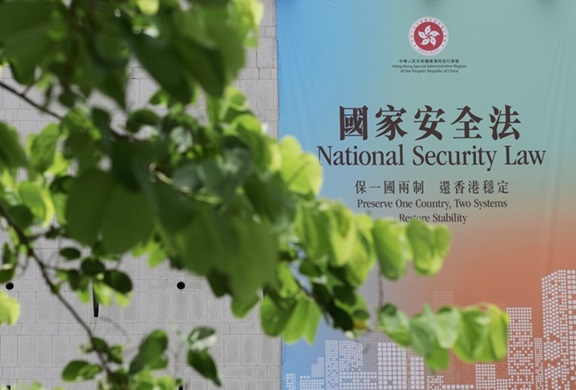In a swift move that surprised many, Hong Kong lawmakers unanimously passed a new national security bill, known as Article 23, within just two weeks of its introduction. Critics argue that this legislation, which imposes harsh penalties for offenses such as treason, sabotage, sedition, and espionage, further threatens the city’s freedoms.
The bill, which comes on the heels of a China-imposed national security law that has already sparked sanctions from the United States, aims to tighten security measures. Despite concerns about potential sanctions and credit rating downgrades, Hong Kong’s leaders remain steadfast in their decision, citing the need to safeguard the city’s security.
Pro-Beijing lawmakers, who dominate the Legislative Council, supported the bill, emphasizing the importance of legislating for the security of both Hong Kong and China. They dismissed concerns about the law’s extraterritorial effect, which extends beyond Hong Kong, insisting that it is necessary to plug loopholes in the national security regime.
Critics, including the U.S. government, fear that the law will further restrict freedoms and could be used to suppress dissent. The U.S. Congressional-Executive Commission on China has criticized the legislation and called on the U.S. government to take action to protect American citizens and businesses in Hong Kong.
Despite these criticisms, Hong Kong officials argue that the new law is no more severe than similar laws in other countries and is essential for maintaining stability and preventing a repeat of the mass protests in 2019. They maintain that the legislation will secure Hong Kong’s prosperity and stability, safeguarding the interests of overseas investors and the fundamental well-being of all Hong Kong citizens.
Critics, however, say that the authorities have ignored calls to better safeguard fundamental rights, including exemptions for the media from crimes like state secrets. They warn that Hong Kong’s uniqueness is being eroded as it becomes increasingly integrated into China’s political and economic sphere.
As Hong Kong finds itself caught between U.S.-China tensions, the implications of this new law for the city’s future remain uncertain.
(Source: Reuters | Hong Kong Free Press)









